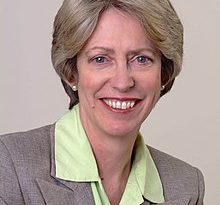Mark Spencer – 2022 Speech on the Cost of Food
The speech made by Mark Spencer, the Minister for Food, Farming and Fisheries, in Westminster Hall, the House of Commons, on 14 December 2022.
It is a pleasure to serve under your chairmanship, Mr Gray. I thank the hon. Member for Liverpool, West Derby (Ian Byrne) for securing this debate and I congratulate all Members who have spoken passionately on the topic.
The rise in food prices is a result of global shocks, including a spike in oil and gas prices and the conflict in Ukraine. I certainly recognise the impact that rising food costs is having on households across the country. My Department is engaging closely with industry to understand potential pressures on our food supply chain, which has shown resilience in coping with unprecedented challenges.
As the hon. Member for Cambridge (Daniel Zeichner) said, we have had a number of debates in this Chamber. He has speculated about us running out of turkeys for Christmas, predicting Armageddon. I reassure him again today that no such Armageddon has taken place, and turkeys will be available for Christmas. Despite his gloom and doom, the measures that the Government have put in place are delivering against the challenges that he described some time ago.
We continue to monitor food prices using the ONS inflation figures. Recent pressures have been sustained, and food price inflation continued to rise to 16.5% in November, up from 16.4% in October.
David Linden
The Minister talks about monitoring food prices. How often does he monitor the increase in food banks?
Mark Spencer
We continue to monitor food prices across the country. The hon. Gentleman also said that Brexit was a huge challenge for food prices. Actually, food price inflation is greater in the eurozone and the EU than in the UK, so I do not think that that is the challenge. Consumer food prices depend on a range of factors, including agri-food import prices, domestic agricultural prices, domestic labour and manufacturing costs and the sterling exchange rates. Some of the factors are influenced by our trading arrangements with other countries, which a number of Members referred to. Change in food prices is dependent on changes in one or more of those factors.
Alison Thewliss (Glasgow Central) (SNP)
I am glad that the Minister is monitoring food prices, but does he monitor the cost of infant formula? The all-party parliamentary group on infant feeding and inequalities has been doing so, and many groups are concerned that the cost of formula is now outpacing the amount of money that people are getting through the UK’s Healthy Start programme. People just cannot afford it, and are watering it down.
Mark Spencer
I thank the hon. Lady for her intervention. The Government monitor all food prices. We are of course aware of the price of the grocery basket, so we are aware of the spikes in food prices across a range of products.
The Department for Environment, Food and Rural Affairs is taking action to maintain an efficient food supply chain by mitigating any potential burdens or friction that could otherwise drive up consumer food prices. In the UK, we are fortunate to have a large and resilient food supply chain. Our high degree of food security is built on supply from diverse sources, strong domestic production and imports through stable trade routes.
Tim Farron
Has the Minister assessed the impact on food prices and business profitability for farmers of the 20% reduction in the basic farm payment this month?
Mark Spencer
The reduction in the basic payment scheme is well advertised. Farmers are aware of it. We engage on a daily basis with farms up and down the country, as we are about to roll out the new environmental land management schemes. In fact, I have been engaging with farmers today on some of the new schemes that are coming, to give confidence in the marketplace that those farmers will continue to produce food, as well as improve our environmental footprint and biodiversity. There is good news there, which will give our farmers the confidence to continue to produce great food.
Dr Poulter
The Minister will recognise that we cannot protect the consumer from price rises without protecting the food producer. What specific support are the Government providing to help UK farmers with the unprecedented rises in input costs that food producers are facing, and to deal with some of the supermarkets’ cartel behaviour in fixing prices, which is having an effect on producers and consumers?
Mark Spencer
I thank my hon. Friend for his intervention. The honest truth is that a lot of support is going to primary producers to help them through the challenges they face. The energy scheme is helping producers, but a lot of the debate this afternoon has been diametrically opposed, with calls for lower food prices for our consumers and, at the same time, a rise in payments to our farmers who produce the food. We cannot have both. If farmers are paid extra at the farm gate—[Interruption.] Look at some of the margins in retail, production and manufacturing. For lots of those businesses, margins are being squeezed quite dramatically and there is a challenge. I would like to see more of the profit trickle down to primary producers. [Interruption.] We are absolutely in a place where we are engaging with primary producers to try to help them with that.
Daniel Zeichner
On that point, will the Minister give way?
Mark Spencer
I will take one more intervention and then I will have to conclude.
Daniel Zeichner
Will the Minister at least tell us what interventions he has made with retailers to make this happen, rather than just let it trickle down?
Mark Spencer
I have had lots of meetings with retailers and with many sectors. The hon. Gentleman mentioned the egg sector; we specifically had an egg roundtable last week, where we pulled together retailers, packers and primary producers to try to get some co-operation within the industry. The meeting was productive and conducted in a spirit of co-operation. There is clear willingness on the part of all parties to make sure the sector works, and we have recently seen improvements in both the supply of eggs and the sharing of costs across the supply chain. That is good example of where we as a Department recognised the challenge, pulled people together, got them around a table and made sure that we had a positive impact on the sector.
The Government are in regular contact with food and farming industries to ensure that they are well prepared for a range of scenarios. We continue to take all the necessary steps to ensure that people across the country have the food they need. Once again, I thank the hon. Member for Liverpool, West Derby for securing the debate and bringing people together.
Luke Pollard
Before the Minister concludes, will he address the issue of hunger, particularly child hunger, which has been raised by so many Members? I appreciate his focus on farming—as a farming nerd, I like that—but there are kids who are going to bed hungry tonight. Will the Minister address that before he sits down?
Mark Spencer
There is a huge package of intervention from the Government to help families up and down the country who are struggling with the cost of living. The Government recognise those challenges. That is why the current Prime Minister, when he was Chancellor of the Exchequer, invested £37 billion in supporting households who are facing such challenges, to ensure they can pay their domestic bills and have a level of support. We are also investing in our local authorities to help them to help those families. That is what the Government are trying to achieve, but there are huge global pressures at play that make that very difficult and challenging.
Claudia Webbe
On that point, will the Minister give way?
Mark Spencer
I cannot take another intervention as I have to give the hon. Member for Liverpool, West Derby the opportunity to conclude the debate. I thank hon. Members for their time today and for the spirit in which the debate has been conducted.


